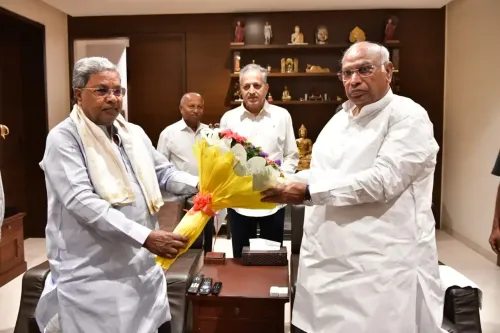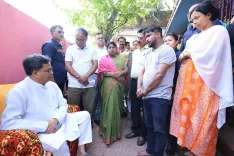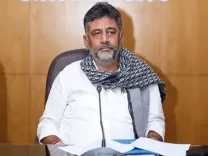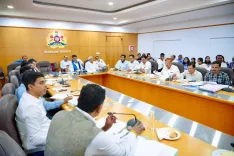Is the ICT Trial Against Sheikh Hasina a 'Show Trial'?
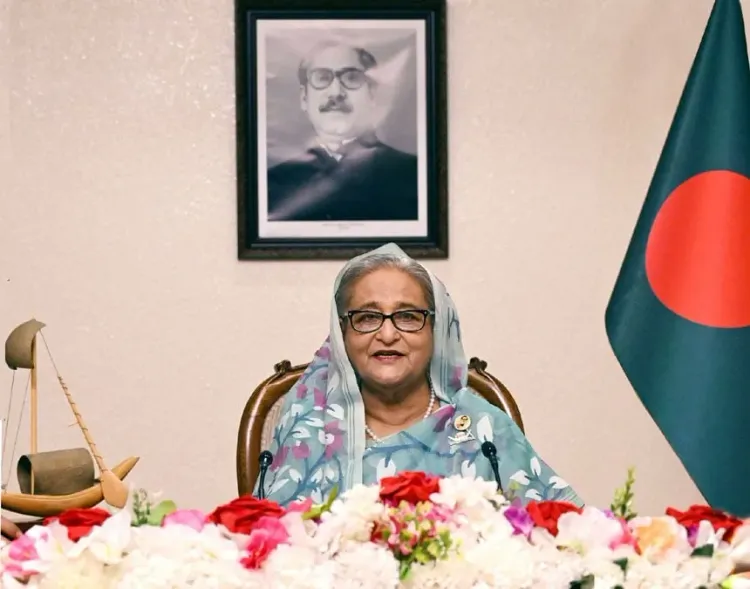
Synopsis
Key Takeaways
- The Awami League condemns the trial as unfair.
- Concerns about due process have been raised.
- Political vendettas are suspected behind the proceedings.
- Sheikh Hasina's leadership is under scrutiny.
- The trial may impact Bangladesh's democratic future.
Dhaka, June 21 (NationPress) The Awami League has expressed strong disapproval regarding the initiation of trial proceedings against its leader and former Prime Minister of Bangladesh, Sheikh Hasina, by the International Crimes Tribunal (ICT), labeling it a 'show trial' orchestrated under the 'unelected and undemocratic' regime of Dr. Muhammad Yunus.
In a forthright statement, the party remarked, 'The initiation of proceedings today serves as a stark reminder of the troubling state of affairs that has engulfed Bangladesh under the unelected, undemocratic leadership of Dr. Muhammad Yunus.'
The Awami League highlighted previous concerns raised by the United Nations regarding the absence of due process and fair trial guarantees in the ICT system.
According to the party, since Yunus took power, the tribunal has exclusively prosecuted Awami League leaders while neglecting crimes against civilians, journalists, religious minorities, and women.
Rejecting the allegations against the former Prime Minister, the Awami League firmly stated, 'We categorically deny the charges that our senior leaders, and the Prime Minister personally, directed the use of lethal force against crowds during last summer's protests.'
'While we acknowledge that, in a chaotic situation, breakdowns in discipline among certain security forces led to regrettable casualties, it is incorrect to portray this as a coordinated attack by the country's elected leadership against its populace.' The party further clarified that the political leadership was not involved in formulating or directing the crowd control tactics employed by security forces at the street level.
The Awami League asserted that it has taken steps towards accountability by establishing an inquiry commission in early August and inviting the United Nations to observe the situation on the ground.
The party also expressed concerns regarding the impartiality of the ongoing trial, pointing out that several officials from the current administration have publicly declared Sheikh Hasina guilty, thereby undermining the possibility of a fair judicial process.
'This cannot and would not constitute a fair trial in any jurisdiction,' the party proclaimed.
Alongside Hasina, former Home Minister Asaduzzaman Khan Kamal and former Inspector General of Police Chowdhury Abdullah Al-Mamun have also been named as co-accused in the case.
The allegations claim that Hasina instructed state security forces, party members, and affiliated organizations to execute severe crackdowns against the rising anti-government protests.
Ironically, the tribunal was established by the government led by Sheikh Hasina under the International Crimes (Tribunals) Act to ensure the detection, prosecution, and punishment of individuals responsible for genocide, crimes against humanity, war crimes, and other offenses under international law committed by the Pakistani Army, with assistance from local collaborators, during the 1971 Liberation War.
Analysts perceive these developments as part of a significant political vendetta pursued by the interim government led by Yunus, as multiple cases were filed against the former Prime Minister and her supporters on trivial grounds immediately following her ousting in August 2024.
A prominent advocate for restoring democracy in Bangladesh, Hasina, the daughter of the nation's founder Sheikh Mujibur Rahman, had to flee the country in a disgraceful manner and seek refuge in India on August 5.

